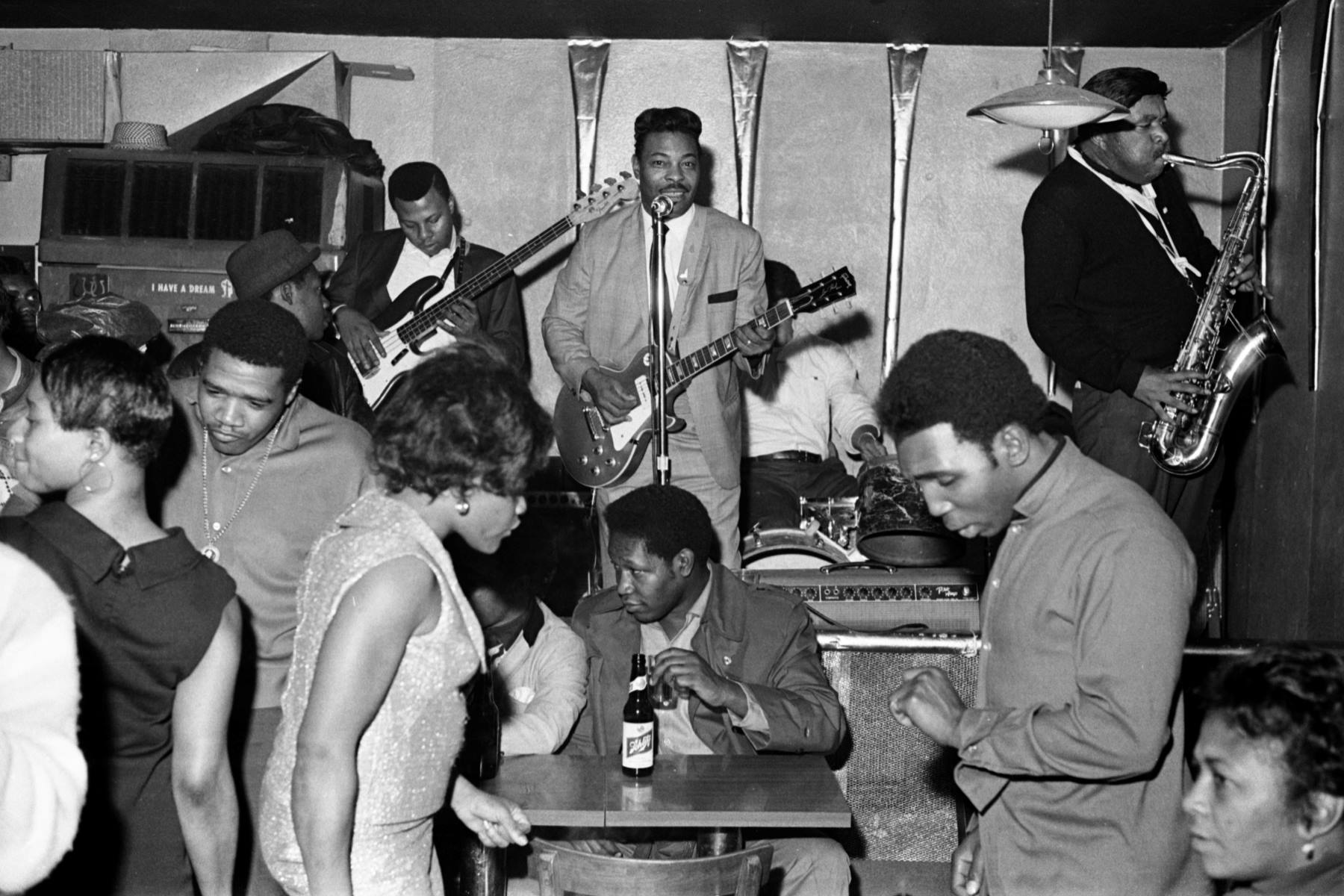Home>Production & Technology>Sound Effects>Why Do Chinese Dramas Have Animal Sound Effects?


Sound Effects
Why Do Chinese Dramas Have Animal Sound Effects?
Modified: January 22, 2024
Discover the fascinating world of Chinese dramas and their use of animal sound effects. Learn why sound effects play a crucial role in enhancing the storytelling experience.
(Many of the links in this article redirect to a specific reviewed product. Your purchase of these products through affiliate links helps to generate commission for AudioLover.com, at no extra cost. Learn more)
Table of Contents
- Introduction
- History of Animal Sound Effects in Chinese Dramas
- Cultural Significance of Animal Sound Effects
- Traditional Chinese Symbolism and Animal Sound Effects
- Modern Usage and Interpretation of Animal Sound Effects
- Psychological Impact of Animal Sound Effects
- Controversies Surrounding Animal Sound Effects
- Conclusion
Introduction
Chinese dramas have gained immense popularity around the world for their captivating storylines, beautiful cinematography, and talented actors. However, one unique aspect of Chinese dramas that sets them apart is the use of animal sound effects. Whether it’s a dramatic chase scene, a comedic moment, or a romantic encounter, you’re bound to hear the distinct sound of an animal in the background.
The inclusion of animal sound effects in Chinese dramas may seem unusual to those unfamiliar with the cultural context. However, this practice has a rich history and holds significant meaning in Chinese culture. From traditional symbolism to modern interpretation, animal sound effects contribute to the overall storytelling experience and add a layer of depth to the visuals.
Throughout this article, we will delve into the history, cultural significance, and psychological impact of animal sound effects in Chinese dramas. We will explore the traditional symbolism behind these sounds, their modern usage and interpretation, and the controversies that surround their inclusion. By the end, you’ll have a deeper understanding of why animal sound effects are an integral part of Chinese dramas and appreciate the artistry behind their implementation.
History of Animal Sound Effects in Chinese Dramas
The use of animal sound effects in Chinese dramas can be traced back to ancient times. In traditional Chinese theater, such as Peking Opera and Kunqu, animal sounds were used to enhance the dramatic effect and immerse the audience in the performance. These sounds were produced by actors using their voices or various musical instruments.
Over time, this practice transitioned to recorded sound effects, allowing for a more consistent and realistic portrayal of animals. In the early days of Chinese film and television, animal sound effects were added manually during the post-production process, utilizing techniques such as foley and synchronization. This meticulous attention to detail contributed to the overall immersive experience for viewers.
Animal sound effects in Chinese dramas serve a practical purpose as well. Given the limitations of on-set filming, it is often difficult or impractical to capture the authentic sounds of animals during production. Therefore, adding these sounds in post-production helps to create a more believable and captivating atmosphere.
Moreover, the extensive use of animal sound effects in Chinese dramas is deeply rooted in the traditional art forms and cultural heritage of China. These sounds connect the modern medium of television and film to the rich legacy of stage performances, continuing a longstanding tradition of storytelling.
In recent years, technological advancements have further enhanced the quality and realism of animal sound effects. From realistic animal mimicry to CGI-generated sounds, filmmakers now have a wide range of tools at their disposal to create a fully immersive audio-visual experience.
Today, animal sound effects continue to be an integral part of Chinese dramas, contributing to the overall aesthetic and emotional impact of the storytelling. They serve as a bridge between traditional theater and modern media, showcasing the evolution of art and technology.
Cultural Significance of Animal Sound Effects
Animal sound effects in Chinese dramas carry a deep cultural significance. They symbolize various aspects of Chinese folklore, spirituality, and beliefs. Each animal is associated with specific traits, symbolism, and cultural context, making the inclusion of animal sounds a meaningful and intentional artistic choice.
For example, the sound of a chirping sparrow may represent love and affection, while the roar of a lion symbolizes power and strength. The choice of animal sounds in a particular scene can subtly convey emotions, foreshadow events, or even represent the characteristics of specific characters.
In Chinese culture, animals are often linked to specific elements, seasons, and directions. The inclusion of animal sound effects helps reinforce these connections and create a harmonious balance within the narrative. For instance, the sound of a flowing river or a gentle breeze accompanied by bird sounds may evoke the imagery of spring and renewal.
Furthermore, animal sound effects in Chinese dramas also reflect the concept of animism, a belief that spirits exist in both living beings and non-living objects. Animals are considered sacred creatures and are believed to possess spiritual powers. By incorporating animal sounds, Chinese dramas tap into this belief system and create a sense of connection to the natural world.
Animal symbolism is deeply ingrained in Chinese culture and is often associated with the zodiac signs. Each year in the Chinese zodiac is represented by an animal, such as the rat, ox, tiger, or dragon. Incorporating the sound of these animals in a drama may be tied to the overarching theme or symbolize the characteristics of individuals born under that zodiac sign.
Furthermore, animal sounds are also used to convey cultural and regional identity. China is a vast country with diverse landscapes and different animal species. By incorporating regional animal sounds, Chinese dramas not only represent the local culture but also help immerse the viewers in a specific setting.
The cultural significance of animal sound effects in Chinese dramas goes beyond mere entertainment value. They serve as a way to preserve and celebrate China’s rich cultural heritage, offering viewers a glimpse into the country’s history, mythology, and traditional symbolism. Through these sounds, Chinese dramas are able to captivate audiences and create a deeper connection to the stories being told.
Traditional Chinese Symbolism and Animal Sound Effects
In traditional Chinese culture, animals hold significant symbolism and are associated with various virtues, qualities, and characteristics. The use of animal sound effects in Chinese dramas is a way to incorporate these symbolic meanings and add depth to the storytelling.
One prevalent example is the portrayal of the dragon in Chinese dramas. The dragon is believed to be a divine creature symbolizing power, wisdom, and good fortune. In dramas, the sound of a roaring dragon may signify the presence of a powerful and noble character or foreshadow an auspicious event.
The mystical qualities of the phoenix are also frequently depicted through animal sound effects. The sound of a melodic bird song represents the phoenix, a symbol of beauty, grace, and resilience. Its inclusion in a scene may suggest a transformative moment or the emergence of a strong, resilient female protagonist.
Additionally, animals such as the tiger and the eagle are often associated with bravery, strength, and ferocity. The thunderous roar of a tiger or the piercing screech of an eagle can emphasize the courage and determination of a character during challenging situations.
Animal sound effects are not limited to mythical creatures. The inclusion of sounds from everyday animals like birds, insects, or even household pets can also carry symbolic meaning. For instance, the delicate chirping of a nightingale may represent love, romance, and tenderness, while the buzzing of bees can indicate an atmosphere of bustling activity or restlessness.
Animal sounds in Chinese dramas also often reflect the natural world and the changing seasons. The gentle rustling of leaves or the soft patter of rain can convey a sense of tranquility, while the howling wind or crashing waves may suggest danger or turbulence. These sounds serve to enhance the visual imagery and immerse the audience in the environment.
Overall, traditional Chinese symbolism combined with animal sound effects adds a layer of cultural richness, depth, and meaning to Chinese dramas. The careful selection and integration of these sounds contribute to the overall aesthetic, narrative, and emotional impact of the story, creating a more immersive and engaging viewing experience for the audience.
Modern Usage and Interpretation of Animal Sound Effects
In modern Chinese dramas, the usage and interpretation of animal sound effects have evolved to adapt to the changing tastes and preferences of the audience. While traditional symbolism still plays a significant role, new creative approaches have emerged, allowing for more nuanced storytelling.
One aspect of modern usage is the incorporation of animal sounds as a form of comedic relief. The unexpected sound of a barking dog or a cackling chicken can add a touch of humor and lighten the mood of a scene. These lighthearted moments often evoke laughter from viewers and enhance the comedic timing of the actors.
Furthermore, animal sound effects can be used to enhance suspense and tension in Chinese dramas. The distant howling of wolves or the scuttling sound of insects can create an eerie atmosphere and heighten the anticipation of a thrilling plot twist or imminent danger.
Animal sound effects are also used to establish a sense of place and setting. The use of specific animal sounds, such as the buzzing of cicadas or the croaking of frogs, can transport the audience to a specific environment, whether it’s a tropical forest or a rural village. These sounds create a realistic ambience and help to immerse viewers in the world of the drama.
Moreover, the interpretation of animal sound effects has become more subjective, allowing for personal and emotional connections. Rather than adhering strictly to traditional symbolism, viewers may now associate certain animal sounds with their own experiences and emotions. For example, the sound of a cat purring may evoke feelings of comfort and relaxation for some, while others may interpret it as a sign of companionship or mystery.
With the advancement of technology, filmmakers now have access to a wide array of realistic animal sound effects and can experiment with different combinations to evoke specific emotions. The careful selection and placement of these sounds can heighten the emotional impact of a scene, making it more relatable and memorable for the audience.
Overall, the modern usage and interpretation of animal sound effects in Chinese dramas have expanded beyond traditional symbolism. They serve to entertain, immerse, and evoke emotional responses from viewers, bringing the stories to life and deepening the connection between the audience and the characters on screen.
Psychological Impact of Animal Sound Effects
Animal sound effects in Chinese dramas have a profound psychological impact on viewers, eliciting various emotional responses and enhancing the overall viewing experience. These effects can be attributed to the way our brains respond to auditory stimuli and the associations we have with different animals.
One of the primary psychological impacts of animal sound effects is the triggering of emotions. Certain animal sounds, such as the gentle cooing of a dove or the playful chirping of a songbird, can create a sense of calmness and relaxation. These sounds have been shown to reduce stress and anxiety, allowing viewers to feel more at ease while watching a drama.
On the other hand, the inclusion of sounds from predatory animals, such as the growl of a wolf or the hiss of a snake, can evoke a sense of fear, tension, and anticipation. These sounds activate our innate survival instincts, increasing our heart rate and keeping us engaged in the narrative.
In addition to emotional responses, animal sound effects can also evoke memories and associations. For example, the sound of waves crashing can transport viewers to a beach vacation they once enjoyed, while the rustling of leaves may remind them of a tranquil forest setting. These auditory cues tap into our long-term memory, allowing us to make connections and engage more deeply with the story.
Animal sound effects also play a role in creating a sense of realism and immersion. Our brains are wired to interpret sounds and create mental images based on what we hear. By incorporating animal sounds that are in sync with the visual cues on screen, Chinese dramas provide a multisensory experience that enhances our suspension of disbelief and makes the fictional world more believable.
Furthermore, animal sounds can serve as a form of sonic branding. Just as a jingle or a distinctive tone can evoke a specific brand or product, the use of certain animal sounds in Chinese dramas can become associated with a particular production, director, or genre. This recognition adds to the overall familiarity and appeal of the drama, giving it a unique identity that resonates with viewers.
In summary, animal sound effects in Chinese dramas have a powerful psychological impact. They evoke emotional responses, trigger memories, enhance realism, and establish a unique identity for the production. By understanding the psychological effects of these sounds, filmmakers can create more engaging and immersive experiences for the audience, leaving a lasting impression on their minds.
Controversies Surrounding Animal Sound Effects
While animal sound effects in Chinese dramas have been widely embraced and appreciated, they have also sparked some controversies and debates among viewers and animal welfare advocates. These controversies mainly revolve around ethical concerns and the treatment of animals used to create these sounds.
One of the main concerns is the potential mistreatment or exploitation of animals during the capturing of sound effects. In the past, foley artists or sound designers relied on live animals to record authentic sounds, which could involve stressful or harmful conditions for the animals. This practice has raised ethical questions regarding animal welfare and whether the trade-off for realistic sound effects is justified.
To address these concerns, many production teams are now opting for more ethical alternatives, such as using pre-recorded sounds from reputable sound libraries or utilizing advanced digital sound design techniques. This allows them to achieve the desired effect without the need to directly involve animals or put them in potentially harmful situations.
Another controversy arises when the use of animal sound effects perpetuates negative stereotypes or reinforces cultural biases. For example, if certain animal sounds are consistently associated with particular regions or ethnic groups, it can lead to misrepresentations or reinforce stereotypes that may be offensive or derogatory. This has led to discussions about the responsible use of animal sounds and the importance of avoiding cultural appropriation or perpetuating harmful narratives.
Additionally, there are debates surrounding the overuse or excessive reliance on animal sound effects in Chinese dramas. Some critics argue that the reliance on these effects can overshadow other aspects of the production, such as dialogue, acting, and storytelling. The exaggerated or unnecessary use of animal sounds may distract viewers from the plot and undermine the overall quality of the drama.
However, it’s important to note that not all controversies surrounding animal sound effects are negative. Some discussions focus on the need for accurate and contextually appropriate sound effects. Advocates argue that using realistic animal sounds, when relevant and necessary, can enhance the authenticity and immersive experience for viewers.
In response to these controversies, both the industry and audiences are becoming more aware and conscious of the ethical implications and cultural sensitivities associated with animal sound effects. Filmmakers and sound designers are increasingly exploring alternative techniques and approaches to strike a balance between creating immersive experiences and respecting animal welfare and cultural considerations.
Overall, the controversies surrounding animal sound effects in Chinese dramas highlight the need for responsible and ethical practices in audio production. By addressing these concerns and engaging in open discussions, the industry can continue to evolve and find innovative ways to enhance storytelling while ensuring the well-being of both humans and animals involved in the creative process.
Conclusion
Animal sound effects in Chinese dramas have a rich history and hold deep cultural significance. From their origins in traditional theater to their modern usage in film and television, these sounds play a crucial role in enhancing the storytelling experience and creating a connection between the audience and the narrative.
Throughout this article, we explored the history of animal sound effects, delving into their cultural significance, traditional symbolism, and modern interpretations. We also discussed the psychological impact of these sounds on viewers, their role in creating a sense of realism, as well as the controversies they have sparked.
Animal sound effects in Chinese dramas serve as more than just background noise. They evoke emotions, trigger memories, and immerse viewers in the fictional world portrayed on screen. These sounds add depth, context, and a touch of magic to the storytelling process, bringing characters and settings to life.
However, it is essential to approach the usage of animal sound effects responsibly and ethically. With advancements in technology and growing awareness, the industry is taking steps to minimize harm to animals and ensure respectful representation of cultures and regions.
As audiences continue to enjoy the captivating world of Chinese dramas, it is important to appreciate the artistry behind the inclusion of animal sound effects. By understanding their cultural roots, symbolism, and psychological impact, we can fully immerse ourselves in the stories being told and appreciate the intricate details that make Chinese dramas a unique and engaging form of entertainment.
In conclusion, animal sound effects in Chinese dramas are an integral part of the overall audiovisual experience. They enrich the narrative, evoke emotions, and create a sense of connection between the audience and the story. As the industry continues to evolve and address ethical concerns, we can appreciate and enjoy these sound effects while respecting the well-being of animals and cultural sensitivity. So, the next time you watch a Chinese drama and hear the distinct sound of an animal in the background, take a moment to appreciate the craftsmanship and cultural heritage behind it.











